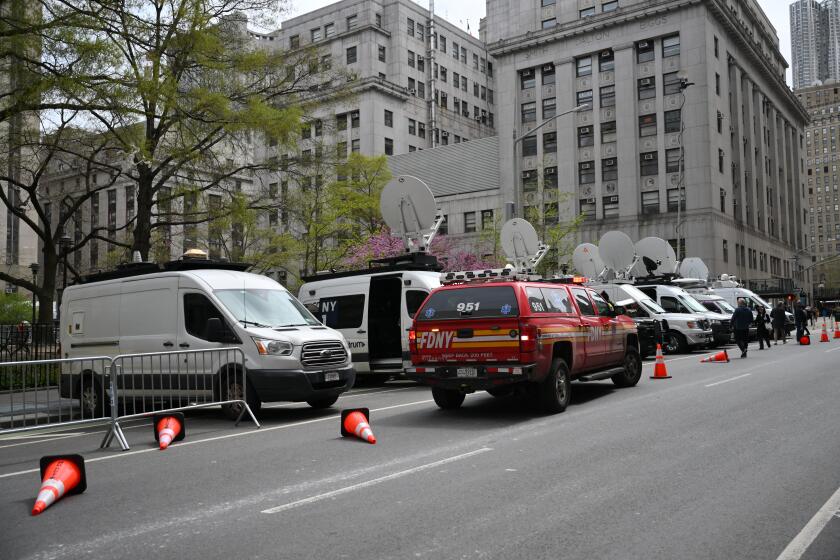Jury selection in Aurora, Colo., theater shooting trial will be open to media
When James E. Holmes gets his day in court, the media - and the public - will get to watch.
On Wednesday, the judge handling the criminal trial in the 2012 Aurora, Colo., theater shooting that left 12 people dead and 70 others wounded denied the prosecution’s and defense’s requests to close jury selection to the media.
Both sides had expressed concern that intense news coverage of the case, expected to be one of the highest-profile trials in Colorado history, would make it difficult for suspected killer Holmes, 26, to get an impartial jury.
But jury selection is typically open to the public, and the media successfully objected to proposals to close part or all of the process.
“Rather than hinder the effectiveness of jury selection, openness and the watchful eye of the media will increase scrutiny and enhance the reliability and fairness of the process,” District Judge Carlos A. Samour Jr. wrote in his ruling. “In the court’s view, sunshine, not darkness, is the appropriate disinfectant here.”
The ruling marked the latest victory for the 1st Amendment in its longstanding conflict with the 6th Amendment, with the pair often butting heads when celebrities or famous criminal suspects head to trial.
The 1st Amendment guarantees a right to free speech, which over the years has come to include an implied right to listen, at least especially when it comes to what happens in courtrooms.
The 6th Amendment secures the right to a fair trial and an impartial jury; defense attorneys often worry that if prospective jurors see too much news coverage of a case, they may be exposed to information that might not be allowable in trial or develop a biased view of the defendant.
Samour’s ruling acknowledges that with some high-profile figures, such as Martha Stewart, it can become difficult to find people who haven’t heard of them or know about the legal trouble they’re facing.
But Samour, citing a long string of case law, said that the attorneys for Holmes and the prosecutors handling his case had not presented enough evidence that media coverage of the case could be reasonably expected to prevent Holmes from getting honest and impartial jurors.
With prosecutors pursuing the death penalty for Holmes, his attorneys are expected to argue that he is not guilty of the attack by way of insanity.
In an effort to secure an impartial jury in one of the nation’s most notorious recent shootings, as many as 6,000 juror summonses could be sent out in a process that could last months.
The trial is tentatively scheduled to begin Oct. 14.
Follow @mattdpearce for national news
More to Read
Start your day right
Sign up for Essential California for news, features and recommendations from the L.A. Times and beyond in your inbox six days a week.
You may occasionally receive promotional content from the Los Angeles Times.







